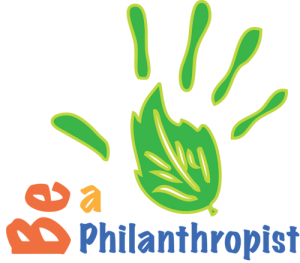(ThyBlackMan.com) As I grow older, I recall with increasing clarity and gratitude the indelible and enduring lessons that I learned from my parents while growing up in the Arkansas Delta. Although my parents had little schooling, they were literate beyond their formal level of education and blessed with an enormous amount of mother wit. One of the lessons that I learned early in life was the importance of philanthropy. Given the limits of my parents’ educational background, I doubt seriously that they had ever heard of the word philanthropy. Yet, there they were fully immersed in a lifetime of philanthropic activities, sharing their time, talents and meager financial resources with the community of which they were an integral part. They never assembled my siblings and me and said, “Now, we are going to teach you about the importance of giving.” Instead, they modeled their values, beliefs and expectations through their actions.
Growing up in the Arkansas Delta during the 1950s and 1960s, with few exceptions, everyone I knew was poor. Within the distribution of poor people, there were subsistence farmers who owned parcels of land, sharecroppers and independent day workers. Physicians (the one or two we had), teachers, land owners, funeral directors and pastors were among the most respected members of the black community. They held whatever leadership positions were available to blacks and were expected to protect the interests and attend the needs of the community. My parents gave away a portion of everything they had, e. g. milk and butter from the dairy cows, vegetables from the truck patch, blackberries they picked along the roadside and in the nearby woods, quilts my mother quilted and meat at hog-killing time. On Sunday, they contributed to the general offering and to the Poor Saints offering. They held steadfast to the belief that the more you give the more you receive. Admittedly, I had real difficulty getting my mind around this entire notion!
respected members of the black community. They held whatever leadership positions were available to blacks and were expected to protect the interests and attend the needs of the community. My parents gave away a portion of everything they had, e. g. milk and butter from the dairy cows, vegetables from the truck patch, blackberries they picked along the roadside and in the nearby woods, quilts my mother quilted and meat at hog-killing time. On Sunday, they contributed to the general offering and to the Poor Saints offering. They held steadfast to the belief that the more you give the more you receive. Admittedly, I had real difficulty getting my mind around this entire notion!
When my brother, sister and I, went off to college, among the first from our congregation to do so, the church took up a goodwill offering to help us along the way. They didn’t have much, but they gave what they had. Several community groups, primarily members of the Eastern Star and the Masons, provided $100 or $200 scholarships, which was enough to buy your books when I was in college.
Because of the lessons that I learned from my parents, I became an early investor in a college education for first generation students like myself. I established my first scholarship fund at my little country church in Arkansas, Shiloh Missionary Baptist, on the Buck Lake Road. In the years since, my spouse and I have established scholarship endowments at four universities. Through our personal contributions, contributions from colleagues and from others in our honor and matching gifts, the corpus of these endowments exceeds $500,000. More than 20 partial scholarships are awarded annually by the universities that manage these endowments.
The moral of this story is simple. Everyone can be a philanthropist. It’s not a matter of how much you give, but that you give at a level commensurate with your capacity to do so. My parents and their neighbors were philanthropists just as those who give hundreds of millions of dollars to have buildings named in their honor.
Now is the time for those men and women who graduated from HBCUs, or any college or university for that matter, to invest in the places that helped them become the persons and the professionals they are today. Everyone can be a philanthropist. Everyone!
Written By Charlie Nelms

















Leave a Reply